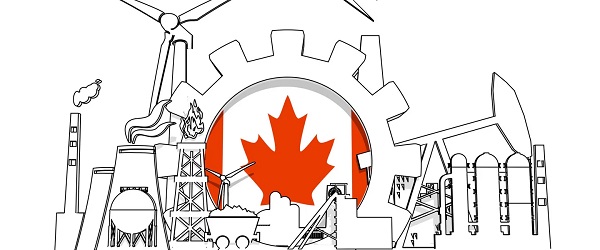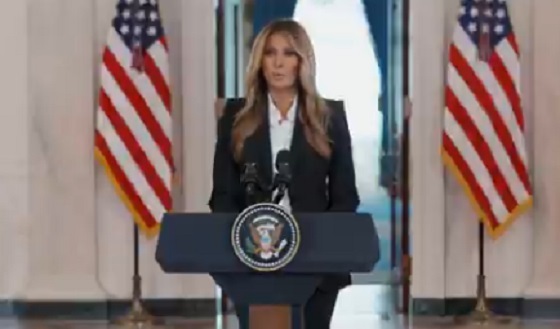Business
Carney’s new cabinet and media interviews fail to provide clarity

From the Fraser Institute
By Jason Clemens and Tegan Hill
Prime Minister Carney unveiled his new cabinet and did post-announcement media but failed to provide the clarity about his government’s actual views on resource development, particularly oil and natural gas. This uncertainty continues to impede private-sector investment, which our country badly needs.
Uncertainty is an investment killer because it makes it almost impossible for entrepreneurs, businesses and investors to reasonably weigh the risks, potential benefits and hurdles of a potential investment. A broadly recognized measure of uncertainty shows Canadian uncertainty at historic levels. The average monthly uncertainty measure between January 1985, when the data series began and December 2019 just before COVID was 135. The average for the first four months of 2025 was 1,300, almost 10 times higher.
An enormous part of that uncertainty relates to Trump’s tariffs, and the havoc they’re inflicting on entrepreneurs, investors and workers. But contradictions from the federal government in several key policy areas including government spending and borrowing, and energy policy are also creating uncertainty.
Unfortunately, Prime Minister Carney’s recent cabinet appointments and his subsequent media interviews failed to provide clarity.
Consider Tim Hodgson, the new Minister of Energy and Resources. He has a strong background in finance—CEO of Goldman Sachs Canada, chair of Ontario’s electric utility company Hydro One and investment board chair of the Ontario Teachers’ Pension Plan. The latter is important because he oversaw and approved investments in traditional energy companies such as Suncor and Canadian Natural Resources. Hodgson also has ties with the Alberta business community through his board appointments on several Calgary-based companies. His appointment has been interpreted by some that the Carney government will pursue policies to develop our oil and gas sector.
But the appointment of Julie Dabrusin as the Minister of the Environment and Climate Change signals the exact opposite. Dabrusin was the Parliamentary Secretary to the two previous Environment Ministers, Jonathan Wilkinson and Steven Guilbeault. Both opposed several pipeline developments, were instrumental in the introduction of a cap on emissions from the oil and gas sector, and other measures specifically designed to limit—if not actually decrease growth—in Canada’s traditional energy sector. A number of high-profile people in the energy patch, including Alberta Premier Danielle Smith, have already raised concerns about her appointment and what it means for energy development.
The appointments of Hodgson and Dabrusin continue the Carney government’s contradictory approach to policy, seemingly trying to be all things to all Canadians.
In a recent interview with CTV News, Prime Minister Carney simultaneously stated his support for new pipelines to deliver oil and gas to new markets but would not clarify if that meant revising or removing legislation that is broadly seen as a barrier to such developments. More specifically, during the campaign Carney said he would not eliminate Bill C-69, which covers how large infrastructure projects including pipelines are reviewed and approved. It’s widely agreed that Bill C-69 and its evaluation criteria make it almost impossible to build new pipelines in Canada.
Moreover, he failed to clarify whether he would eliminate the government’s current cap on emissions from the oil and gas sector, which is widely accepted as a cap on production. Indeed, according to the independent Parliamentary Budget Officer, the cap would result in less oil and gas production.
These glaring contradictions, which appear to be rooted in attempts to satisfy all Canadians and voting constituents, will need to be clarified at some point. There will come a time—whether it’s a budget (which apparently Canadians won’t see until next year), an application by a company to build a new pipeline, or perhaps just the continuing economic stagnation of the country—when the prime minister will be forced to make a clear choice. Until then, the cost of uncertainty will continue to impose real hardship on Canadians.
Business
UN, Gates Foundation push for digital ID across 50 nations by 2028

From LifeSiteNews
With 30 nations enrolled, the UN and Gates Foundation’s digital ID campaign signals accelerating efforts to create a global digital infrastructure that centralizes identity and data.
The 50-in-5 campaign to accelerate digital ID, fast payment systems, and data exchanges in 50 countries by 2028 reaches a 30 country milestone.
Launched in November 2023, the 50-in-5 campaign is a joint effort of the United Nations, the Bill and Melinda Gates Foundation, and their partners to rollout out at least one component of Digital Public Infrastructure (DPI) in 50 nations within five years.
DPI is a civic technology stack consisting of three major components: digital ID, fast payment systems, and massive data sharing between public and private entities.
30 countries have now joined the UN/Gates 50-in-5 DPI campaign to rollout Digital ID, Fast Payment Systems & Massive Data Exchanges between public & private entities https://t.co/dOYCfQHObt pic.twitter.com/yP6V7zxnUD
— Tim Hinchliffe (@TimHinchliffe) October 2, 2025
50-in-5 started with 11 first-mover countries, and with the count now at 30 the participating countries include:
Bangladesh, Brazil, Cambodia, Dominican Republic, Estonia, Ethiopia, France, Guatemala, Jamaica, Kazakhstan, Lesotho, Malawi, Mexico, Moldova, Nigeria, Norway, Senegal, Sierra Leone, Singapore, Sri Lanka, South Africa, South Sudan, Somalia, Togo, Trinidad and Tobago, Uganda, Ukraine, Uruguay, Uzbekistan, and Zambia.
The 50-in-5 campaign celebrated its 30-country milestone during a sideline event at the U.N. General Assembly in New York on September 22.
There, government officials, like Ukraine’s deputy prime minister, praised the work of 50-in-5 while the ministers of digital economy from Nigeria and Togo called for an interoperable digital identity system for the entire African continent.
Nigeria’s Minister of Communications, Innovation and Digital Economy Bosun Tijani said that each country could build their own digital identity scheme, but that they should all be interoperable with one another – demonstrating both the digital ID and data sharing as good potential use cases for DPI.
“Nations want to maintain their own ID databases, but I think we have a unique opportunity to apply strong data exchange system interoperability,” said Tijani.
“I think a digital identity system that can go with you wherever you are going on the African continent would be a fantastic example,” he added.
Nigeria's minister of Communications, Innovation & Digital Economy Bosun Tijani calls for Digital ID to be interoperable across all Africa: "A digital identity system that can go with you wherever you go on the African continent will be fantastic." 50-in-5 https://t.co/dOYCfQHObt pic.twitter.com/KB380uQrmd
— Tim Hinchliffe (@TimHinchliffe) October 2, 2025
In March 2025, the Nigerian government published a framework to develop national Digital Public Infrastructure that would leverage digital ID to track and trace “key life events” of every citizen from the cradle to the grave.
“Throughout a citizen’s life, from birth to old age, there are marked moments of significant life events requiring support or service from the government,” the paper begins.
“Some of these services include registration of births, antenatal healthcare, vaccines, school enrollment, scholarships, health insurance for business registrations, filing of taxes, etc.”
These “life events” require every citizen to have a digital ID:
The Federal Government of Nigeria is on a mission to appropriately deploy digital technology to support Nigerians through these significant and profound moments so they can integrate into the state and enjoy the benefits of citizenhood from cradle to old age.

Back at the 50-in-5 milestone event, Togo’s Minister of Digital Economy and Transformation Cina Lawson called for a free, cross-border, interoperable digital ID powered by the Modular Open Source Identity Platform (MOSIP).
MOSIP is a Gates-funded platform that “helps govts & other user organizations implement a digital, foundational identity system.”
Said Lawson, “We’ve initiated conversations with our neighbors, namely Benin, to have interoperability of our ID systems, but also Burkina Faso and other countries such as Senegal, because we’re using MOSIP platform, so what we do is that we host meetings of countries that are interested the platform, so that we could see how we [are] operating it and so on.”
“Our ID system, using the MOSIP platform, is really the ID that the majority of the Togolese will have because first of all it’s free, it doesn’t require to show proof of citizenship, and so on, so that is the ID card of the poorest of the Togolese,” she added.
Togo’s Minister of Digital Economy & Transformation Cina Lawson calls for free, cross-border, interoperable Digital ID using Gates-funded MOSIP platform. UN/Gates 50-in-5 event https://t.co/dOYCfQHObt pic.twitter.com/wPC4vpms9l
— Tim Hinchliffe (@TimHinchliffe) October 2, 2025
Lawson also spoke at the 50-in-5 launch event in November 2023, where she explained that Togo’s DPI journey began with the arrival of COVID-19.
First, the government set up a digital payments system within 10 days.
“We deployed it, and we were able to pay out 25 percent of all Togolese adults, and we distributed $34 million that the most vulnerable Togolese received directly through their mobile phones,” said Lawson.
Then, came vaccine passports.
“We created a digital COVID certificate. All of a sudden, the fight against the pandemic became really about using digital tools to be more effective,” she added at the time.
Today, Togo became the first sub-Saharan African country whose digital COVID-19 vaccination certificate is recognized by the @eu_commission. Travelers with a Togolese certificate will be able to validly present it in the EU & vice versa. @AmbUETogo @KoenDoens pic.twitter.com/Uy9mRF8bkU
— Cina Lawson (@cinalawson) November 24, 2021
To get an idea where DPI is heading, Ukraine’s Deputy Prime Minister Myhailo Fedorov gave a pre-recorded speech for the 50-in-5 milestone event, saying that his country was successful in building “the state in a smartphone” via the DIIA app, which had reached 23 million users.
“For every citizen, government should be simple, convenient, nearly invisible, and accessible in just a few clicks,” said Fedorov.
“Today, 23 million people use the DIIA app […] Since the launch of DIIA in 2020, Ukrainians and the state have saved about $4.5 billion to date.”
“This is the combined anti-corruption and economic effect of digitalizing services.”
“For us, it’s powerful proof of DIIA’s efficiency and the real impact of building a digital state,” he added.
Ukraine Deputy PM Mykhailo Fedorov praises DIIA Digital ID app, with 23M users, for being a "STATE IN A SMARTPHONE" & "BUILDING AN (INVISIBLE) DIGITAL STATE." An "ANTI-CORRUPTION/ECONOMIC EFFECT OF DIGITALIZING SERVICES." Includes "ONLINE MARRIAGE" 50-in-5 https://t.co/dOYCfQHObt pic.twitter.com/MUFwbW4Yyy
— Tim Hinchliffe (@TimHinchliffe) October 3, 2025
Speaking at the World Economic Forum (WEF) Global Technology Governance Summit on April 7, 2021, Fedorov told the panelists of the “Scaling Up Digital Identity Systems” session, that it was Ukraine’s goal to “enable all life situations with this digital ID.”
“The pandemic has accelerated our progress […] People have no choice but to trust technology,” Fedorov said at the time.
“We have to make a product that is so convenient that a person will be able to disrupt their stereotypes, to break through from their fears, and start using a government-made application,” he added.
The 50-in-5 campaign is a collaboration between the Bill and Melinda Gates Foundation, the United Nations Development Program, the Digital Public Goods Alliance, the Center for Digital Public Infrastructure, and Co-Develop; with support from GovStack, the Inter-American Development Bank, and UNICEF.
The Center for Digital Public Infrastructure is backed by Co-Develop and Nilekani Philanthropies.
Nandan Nilekani is one of the architects of India’s digital identity system, Aadhaar.
Co-Develop was founded by The Rockefeller Foundation, the Bill & Melinda Gates Foundation, Nilekani Philanthropies, and the Omidyar Network.
The Omidyar Network is a funder of MOSIP.
The Digital Public Goods Alliance lists both the Gates and Rockefeller foundations in its roadmap showcasing “activities that advance digital public goods,” along with other organizations and several governments.
At last year’s Summit of the Future, 193 nations agreed to the non-binding “Pact for the Future,” which dedicates a section in its annex, the “Global Digital Compact,” to implement DPI in member states.
One year later, the U.K. announced it was going to force Britons into mandatory digital ID schemes under the guise of combatting illegal immigration.
Reprinted with permission from The Sociable.
Business
Netherlands Seizes Chinese-Owned Chipmaker in Unprecedented Security Move

Court-approved removal of executive Zhang Xuezheng bears hallmarks of counter-intelligence concern
The Dutch government has taken control of Chinese-owned semiconductor manufacturer Nexperia, invoking an urgent national-security law directed at Beijing to safeguard Europe’s access to critical technology used across the automotive and electronics industries.
In a statement issued late Sunday, the Ministry of Economic Affairs said it had taken the “highly exceptional” decision to invoke the Goods Availability Act on September 30. The move followed “recent and acute signals” of such “significant scale and urgency” involving “serious governance shortcomings and actions within Nexperia” that Minister Vincent Karremans was compelled to intervene.
“The decision aims to prevent a situation in which the goods produced by Nexperia would become unavailable in an emergency,” the ministry said.
“These signals posed a threat to the continuity and safeguarding on Dutch and European soil of crucial technological knowledge and capabilities. Losing these capabilities could pose a risk to Dutch and European economic security.”
It is not known what specific information Dutch authorities gathered on Nexperia executive Zhang Xuezheng, who has been suspended from all management and board positions, but the move, approved by the Amsterdam Court of Appeal, has the hallmarks of a national security alert deemed severe by Dutch lawmakers.
Nexperia, headquartered in Nijmegen, produces semiconductors used widely in the European automotive industry and consumer electronics and is a key link in the continent’s industrial supply chain. The government said normal production will continue, but Karremans now has powers to block or reverse company decisions that could harm national or European interests.
The ministry’s order bars Nexperia and all its global subsidiaries, branches, and offices from making any adjustments to their assets, intellectual property, business operations, or personnel for one year.
Nexperia’s Chinese parent company, Wingtech Technology Co., a Shanghai-listed conglomerate placed on the U.S. Commerce Department’s Entity List in 2023, denounced the Dutch move, saying it “constitutes an act of excessive interference driven by geopolitical bias, not by fact-based risk assessment.” Wingtech said the measure “gravely contravenes the European Union’s long-standing advocacy for market-economy principles, fair competition, and international trade norms,” and “strongly” protested “discriminatory treatment toward a Chinese-owned enterprise.”
Wingtech disclosed to the Shanghai Stock Exchange that it had been notified of the Dutch order on September 30, but the government did not make the intervention public until October 12.
The Dutch government’s action marks the first time the Netherlands has used its emergency powers to seize control of Chinese-state linked company — an escalation that mirrors Washington’s strategic-industrial posture and signals Europe’s entry into a new era of techno-sovereignty.
In Britain, Nexperia’s ownership structure had already triggered alarm. In 2021, the company’s acquisition of Newport Wafer Fab, the UK’s largest semiconductor plant, was blocked by the Conservative government over national-security fears. The UK later ordered Nexperia to divest most of its stake under the National Security and Investment Act in 2022.
The controversy resurfaced this year amid the collapse of a high-profile espionage prosecution under Prime Minister Keir Starmer’s government. The Mail on Sunday reported, citing an unidentified source, that Christopher Berry—one of two men previously charged with spying for China—“sent details of the row within government on the Newport Wafer Fab semiconductor factory, which was initially sold to Nexperia but later blocked by the Conservative government over national-security fears.”
The Netherlands’ intervention follows escalating moves by allied governments to tighten control over critical-tech supply chains. Just days earlier, Beijing imposed sweeping export restrictions on rare-earth minerals, essential for cars, wind turbines, and electronics, citing “national security” grounds — mirroring Western justifications for semiconductor controls. The action drew a strong counter-threat from U.S. President Donald Trump, who warned that Washington could impose 100 percent additional tariffs on all Chinese goods if Beijing “weaponizes its mineral dominance.”
A semi-detente appeared to emerge after Trump’s weekend remarks suggesting a pause in escalation. But the Dutch government’s unilateral action underscores a global race to secure access to critical industrial components amid fears of spreading conflict in Europe and rising tensions in Asia.
The Bureau is a reader-supported publication.
To receive new posts and support my work, consider becoming a free or paid subscriber.
-

 Media1 day ago
Media1 day agoResponse to any budget sleight of hand will determine which audience media have decided to serve
-

 Frontier Centre for Public Policy1 day ago
Frontier Centre for Public Policy1 day agoCanada’s Democracy Is Running On Fumes
-

 Education1 day ago
Education1 day agoClassroom Size Isn’t The Real Issue
-

 International20 hours ago
International20 hours agoMelania Trump quietly reunites children divided by Ukraine war
-

 Business1 day ago
Business1 day agoYour $350 Grocery Question: Gouging or Economics?
-

 illegal immigration20 hours ago
illegal immigration20 hours ago$4.5B awarded in new contracts to build Smart Wall along southwest border
-

 Business3 hours ago
Business3 hours agoTruckers see pay surge as ICE sweeps illegal drivers off U.S. highways
-

 Brownstone Institute3 hours ago
Brownstone Institute3 hours agoTrump Covets the Nobel Peace Prize










